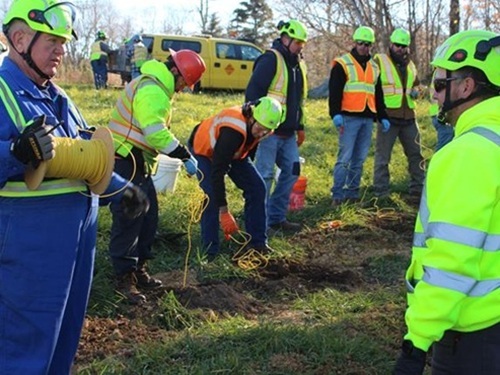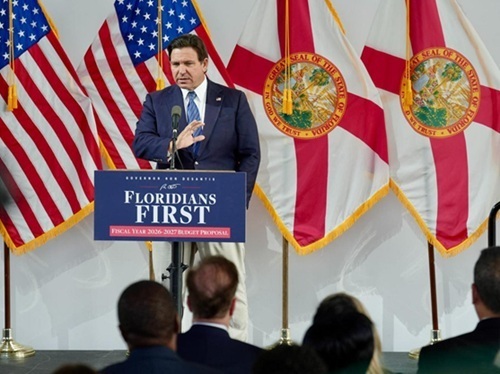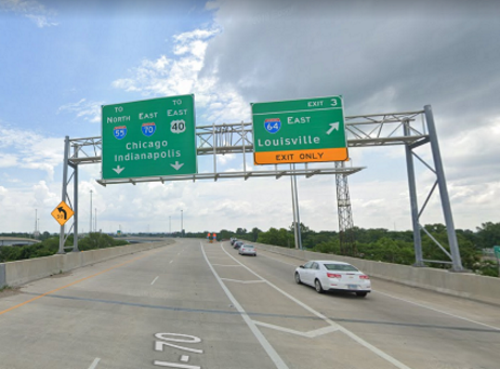Reduced travel due to the COVID-19 pandemic decreased state motor fuel tax or MFT revenue for Illinois by $308 million, according to a 16-page report issued March 25 by the non-profit Illinois Economic Policy Institute.
[Above photo by the Illinois DOT.]
That decline is poised to affect, among other things, the six-year $45 billion Rebuild Illinois infrastructure-funding program established in June 2019. The MFT is Rebuild Illinois’ most significant funding stream – accounting for more than 66 percent of all new estimated annual transportation revenues for the program or some $2.5 billion per year.
“As people travel less, they will purchase less fuel and ultimately contribute less to transportation funding,” the Illinois EPI said in its report, noting that the Rebuild Illinois program increased MFT rates by 19 cents per gallon for gasoline and 24 cents per gallon for special fuels – indexing both to inflation.

That increase – estimated to generate an additional $1.3 billion in revenue every year – could be jeopardized as the MFT is what proved the most susceptible to the “negative consequences” of declines in consumer traffic due to COVID-19.
The Illinois EPI report found that the pandemic-related decline in motor vehicle travel between April 2020 and February 2021 reduced MFT revenues by the aforementioned $308 million.
That 11-month loss affects funding for the Illinois Department of Transportation, transit agencies, and local governments, the report said – and directly reduces revenue available to invest in transportation infrastructure as part of the Rebuild Illinois capital plan.
Transit agencies are hurting even more, the report added, as – despite a recovery in economic activity in the later months of 2020 – transit ridership failed to rebound significantly, resulting in “massive losses” in fare box revenue. Transit agencies also depend on sales tax revenue, which continues to underperform, the Illinois EPI said.

“With vaccinations offering the potential for a return to the pre-pandemic normal by the end of 2021 and increased federal funding under the American Rescue Plan forthcoming, transportation funding and infrastructure investment in Illinois may soon get back on track,” the group said in its report.
“However, further study [is] needed. The pandemic induced a general shock to the system as travel habits and trends changed overnight,” the Illinois EPI added.
“Only time will allow for a full understanding of altered travel habits, demographic shifts, and overall post-pandemic economy [for Illinois],” the group said in its report. “Consequently, it will be important to continue tracking travel trends, associated revenues, and emerging infrastructure needs to understand required investments to promote equity and economic growth in the decades ahead.”
 States
States
NCDOT Staff Participate in ‘Explosive’ Technical Training
December 19, 2025 States
States

